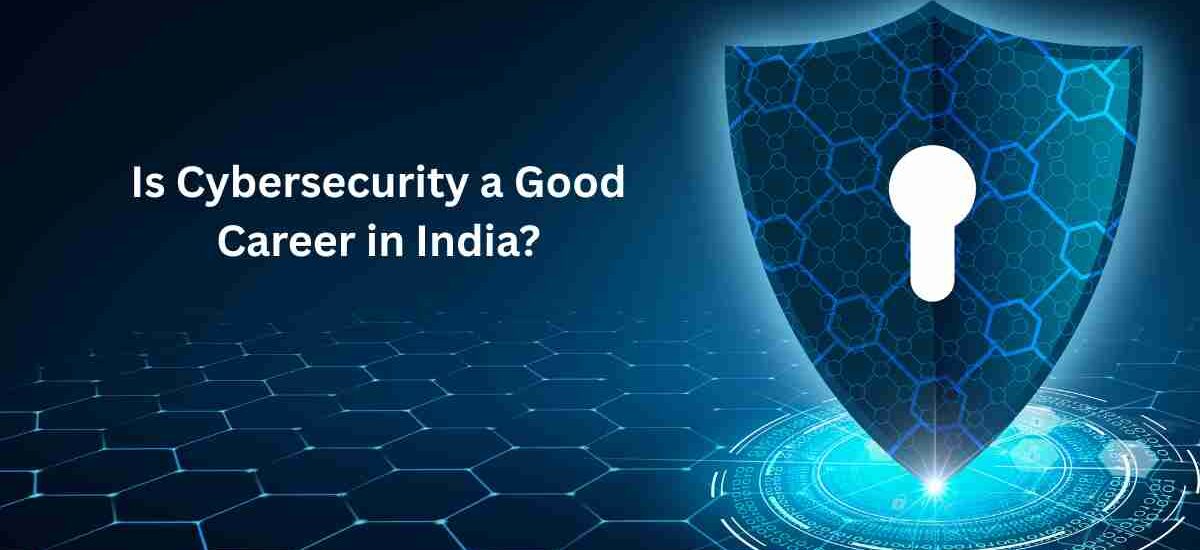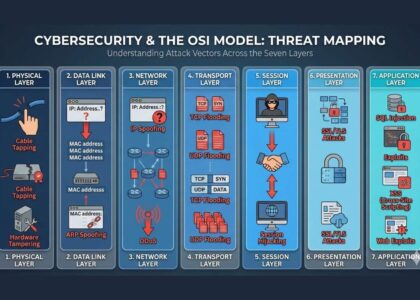In a world increasingly connected by data, devices, and digital ecosystems, cybersecurity is no longer a luxury or a niche—it is a necessity. Especially in India, where rapid digital transformation is taking place across industries, from startups to government sectors, the demand for cybersecurity professionals is at an all-time high. But the million-dollar question remains: Is cybersecurity a good career in India?
To answer this, let us dive deep into various aspects like job opportunities, growth potential, salaries, skill requirements, myths, and the human side of being in this dynamic field.
1. The Growing Demand for Cybersecurity in India
India is undergoing a digital revolution. With initiatives like Digital India, Aadhaar, UPI, and the rise of fintech, edtech, healthtech, and smart cities, data is flowing through every sector. But with great data comes great responsibility—and vulnerability.
India faced over 13 lakh cyberattacks in 2022 alone, as per CERT-In (Indian Computer Emergency Response Team). From ransomware targeting banks to phishing scams hitting common citizens, cybersecurity threats are no longer fiction—they are everyday reality.
Because of this, companies are now investing heavily in protecting their digital infrastructure. Whether it’s a small startup or a Fortune 500 company, cybersecurity professionals are in demand. According to NASSCOM, India will need over 1 million cybersecurity professionals by 2025. Yet, the talent gap remains huge.
2. Career Paths in Cybersecurity: It’s Not Just One Job
One of the biggest myths people believe is that cybersecurity means only “ethical hacking” or “penetration testing.” In reality, cybersecurity is a broad field with many specializations. Here are just a few career options:
- Security Analyst
- Incident Responder
- Penetration Tester / Ethical Hacker
- SOC Analyst (Security Operations Center)
- Cyber Forensics Expert
- Risk Analyst
- Cybersecurity Auditor
- Threat Intelligence Analyst
- Application Security Engineer
- Cloud Security Specialist
Whether you’re good at writing code, analyzing data, investigating breaches, or educating people—there’s a role for you.
3. Lucrative Salaries: Money Meets Meaning
Let’s be honest: salary matters. And in cybersecurity, the pay is generally above average compared to many other tech roles.
Here’s a rough breakdown:
- Entry-Level (0-2 years): ₹4 LPA to ₹8 LPA
- Mid-Level (3-5 years): ₹10 LPA to ₹20 LPA
- Senior-Level (5+ years): ₹20 LPA to ₹50+ LPA
- Freelancers / Bug Bounty Hunters: Earnings can be unpredictable but sometimes exceed ₹1 crore a year
Multinational corporations (MNCs), banks, IT giants, and even government agencies are paying competitive packages. Cybersecurity freelancers and bug bounty hunters also earn in dollars through platforms like HackerOne, Bugcrowd, and Synack.
4. Cybersecurity Certifications and Education: Do You Need a Degree?
This is a hot topic. Many aspiring professionals wonder, “Do I need a B.Tech or a Computer Science degree to enter cybersecurity?”
The answer is: Not necessarily.
While a formal education helps, what truly matters is your skills and practical knowledge. Some of the most respected cybersecurity professionals in India today are self-taught or come from non-technical backgrounds.
Here are some certifications that boost your credibility:
- CEH (Certified Ethical Hacker)
- CompTIA Security+
- OSCP (Offensive Security Certified Professional)
- CISSP (Certified Information Systems Security Professional)
- CISA (Certified Information Systems Auditor)
- Google Cybersecurity Certificate (Beginner Friendly)
Bootcamps, YouTube tutorials, Capture The Flag (CTF) challenges, and open-source tools are great ways to learn practically.
5. Is Cybersecurity Stressful? The Human Side of the Job
Let’s talk about mental health, stress, and work-life balance—because no job is worth it if it ruins your peace.
Cybersecurity can be demanding, especially in roles like Incident Response or Threat Hunting, where you might be on call 24/7. Security breaches don’t wait for office hours.
However, many professionals say that the work is challenging but fulfilling. You’re not just coding or making reports—you’re actually protecting people, companies, and sometimes even national security.
With proper boundaries, supportive teams, and time management, the stress can be managed. Remote work opportunities are also growing, allowing for more flexibility.
6. Startups, Government, and MNCs: Opportunities Across Sectors
The beauty of cybersecurity is that it’s not confined to one industry. Here are the sectors hiring in India:
- Startups: Often hire security experts as consultants
- MNCs: TCS, Infosys, Wipro, Accenture, IBM, Deloitte, etc.
- Government: DRDO, CERT-In, Indian Cyber Crime Coordination Centre, NIC
- Banks: HDFC, SBI, ICICI, Axis, and international banks
- E-commerce: Flipkart, Amazon, Paytm
- EdTech and HealthTech: Data protection is a priority
Whether you want to work for the government or launch your own cybersecurity startup, India is ripe with opportunities.
7. Myths Busted: What Cybersecurity Is Not
Let’s clear some common myths:
- “You need to be a hacker to be in cybersecurity.” False. Hacking is just one part.
- “You must know advanced coding.” Not for every role.
- “Only engineers can do it.” Not true. Anyone with a learning mindset can.
- “It’s boring or technical only.” Actually, it’s dynamic and ever-evolving.
- “Jobs are only abroad.” India has massive demand too.
8. Women in Cybersecurity: Breaking the Barrier
Cybersecurity is also witnessing a welcome change—more women are entering the field.
Organizations like WiCyS (Women in CyberSecurity) and InfosecGirls are creating safe spaces and mentorship programs for women in India to break into and thrive in this industry.
The field is not male-dominated by design; it’s open to anyone willing to learn, regardless of gender.
9. Freelancing, Bug Bounties, and International Exposure
Want to travel, work remotely, or earn in dollars? Cybersecurity is one of the few fields that allows this.
- Freelancers can consult, audit, or test websites and apps.
- Bug Bounty Hunters get paid to find bugs in real-world platforms.
- Remote jobs are offered by international firms like CrowdStrike, Palo Alto Networks, and startups in Europe and the US.
A laptop and good internet can open global doors.
10. Real Stories from Indian Cybersecurity Professionals
Let’s humanize this further:
- Rohit, a college dropout from Delhi, now works with a US-based firm as a malware analyst.
- Sanjana, a former arts student, learned cybersecurity from YouTube and landed a SOC Analyst role at an MNC.
- Arjun, a bug bounty hunter, has earned over ₹50 lakhs from platforms like HackerOne.
These stories are real, and they show that with dedication, cybersecurity is not just a job—it’s a career that changes lives.
Final Thoughts: Is Cybersecurity a Good Career in India?
Absolutely YES—if you have the passion to learn, adapt, and grow.
Cybersecurity is not a one-time effort; it’s a lifelong learning journey. But it is also one of the most rewarding, flexible, impactful, and future-proof careers in India today.
Whether you’re a student, job switcher, or freelancer looking for purpose and pay, cybersecurity is worth exploring. The barriers to entry are lower than ever, and the sky’s the limit.
So, is cybersecurity a good career in India?
Yes. And maybe, it’s the best one for the next decade.






